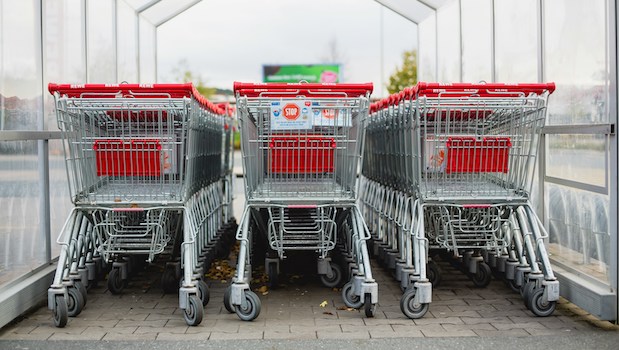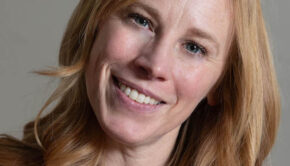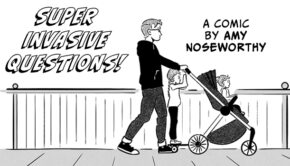Cookies and Other Sustenance: Economic Injustice, the Adoption Industrial Complex, and Being Human on the Internet
The day before World Adoption Day—and one week into the federal government’s withholding of SNAP benefits—I found myself scrolling what I will call Adoption Abolition Instagram, a loose network of accounts whose thesis I can best summarize as this: If our society provided appropriate financial, medical, and psychological support to expectant parents, adoption would not be necessary.* Instead, money that might be used to support struggling families feeds the adoption industrial complex: agencies, attorneys, facilitators, and people like Hank Fortener, founder of an adoption crowdfunding platform and the inventor of World Adoption Day.
Here’s the thing: I mostly agree. Here’s the other thing: I’m the mom of two children via domestic open infant adoption.
I read a post directed at expectant parents considering adoption:
“They’ll get another baby. If revoking your consent or ending an adoption plan is a hesitation because you feel bad for the Prospective Adoptive Parents…. They’ll get another baby,” said a carousel of slides by @thefamilypreservationproject. “They will say goodbye to the idea of your baby and the next baby will become their ‘meant to be.’… They CAN get another baby. Once an adoption is irrevocable, you CANNOT get YOUR baby…. Don’t worry yourself over their loss because they have no worries over yours. They’ll get another baby and your baby will be an afterthought to them.”
I mostly agreed. But the last part stung.
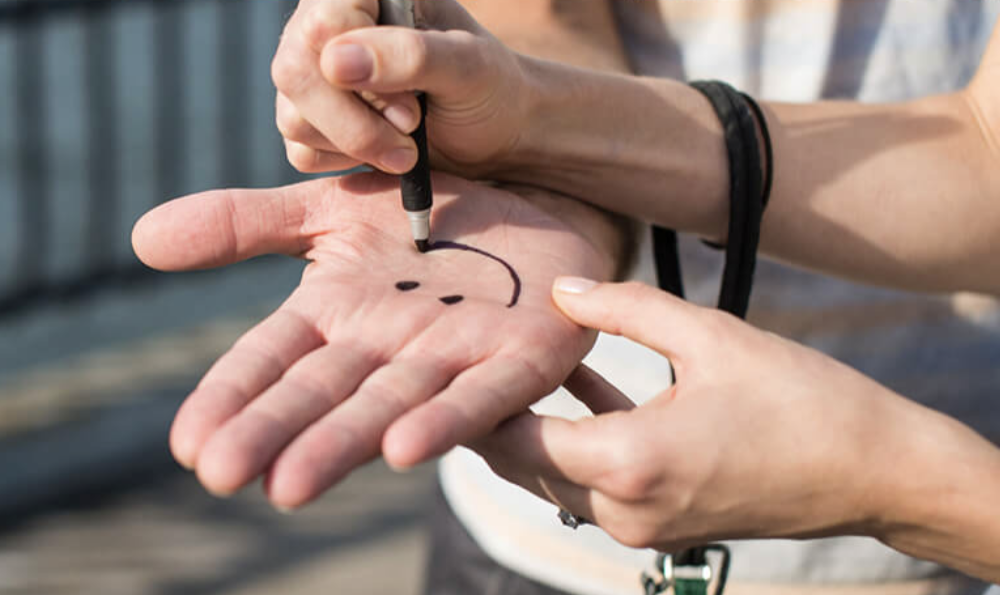
I replied, “I’m an adoptive parent who went through four disrupted adoptions before we adopted our youngest…. But I NEVER talked about a ‘meant to be’ baby, and I still think about every one of those moms years later.”
I continued: “One mom told us she was having doubts a couple of weeks before her due date. We told her that she was a great mother to the child she already had, and that her decision had to be for herself and her children. We kept supporting her financially, and when she kept her baby, we knew it was the right decision. As adoptive parents, we were and are all right. But there’s a way to communicate that without assuming adoptive parents don’t care about expectant parents.”
@thefamilypreservationproject replied, “‘As adoptive parents, we were all right.’ That’s all you had to say. Literally, the point.”
That reply got six likes. My comment got zero.
*
Joey, the baby who arrived after the four disruptions—as unexpected in our lives as he was in his first parents’—climbed into the bed, demanding juice and cuddles.
I took him into the main room of our house and poured him what I feel compelled to note—because I must prove myself worthy of motherhood at all times—was one part juice to three parts water. I recounted my early-morning internet exchange to C.C., my spouse.
“I think I just performed some adoptive parent fragility,” I confessed.
C.C., who devotes her time on the internet to reading about movies, is used to my deep dives into territory in which I am the villain, or at least a villain. Driven by one part self-loathing and three parts hope that I’ll be given cookies by the people I oppressed (birth parents, in case that’s not clear), I tell myself I have a responsibility to listen to adult adoptees.
“I was hoping people would say, ‘You’re the exception. You’re the good adoptive parent!’” I said. #NotAllAdoptiveParents!
C.C. looked one part tired, one part amused. “So they did their little dance, and you did yours.”
“Pretty much,” I said. “And then they shut me down, and I replied and said ‘Fair point,’ because I know that not arguing back is more likely to get me a cookie.”
C.C. mimed a shimmy, all of us twirling about in our internet spaces.

I took Joey and Dash, his ten-year-old brother, to Trader Joe’s, where I helped Dash find uncured hot dogs and asked Joey to sit on his booty in the cart approximately seventy times. We loaded our cart with lactose-free milk and frozen pizza, bananas and applesauce and a few things for the new food pantry at Dash’s elementary school. (See, I’m a good person! Counterpoint: A better person would just cut a check so poor people could buy their own groceries.)
We are not on SNAP benefits. I work for a nonprofit and C.C. is still completing her hours at a low-paid internship so she can become a licensed Marriage and Family Therapist. But we get financial help from my dad, who, ironically, spent my childhood repeating Ronald Regan’s rhetoric about welfare queens, and we have a credit card we haven’t maxed out yet this month.
“Can I get chips?” Dash asked.
“What kind?” I asked. “Joey, sit on your booty, please. I don’t want you to fall out of the cart.”
Dash held up Veggie Stix, straws made of reconstituted potato and maybe a carrot.
“That’s fine,” I said.
At the checkout, an older woman paused on her way to the exit. “I just want to say, you are such a kind and patient mother. My kids are grown now, and I remember those trips to the grocery store.”
“Thank you, you just made my day,” I said, and made a joke about my patience depending on the time of day. The previous night, Dash had asked for a third snack at 10pm, and I’d started crying from exhaustion.
Now, I almost cried again.
Of course, the thing the internet is bad at making space for, despite its nearly infinite space, is that two things can be true. I can be a good mom and the adoption industrial complex can be an outgrowth of an economic system that favors the white and wealthy.
In a recent MUTHA interview, Bridey Thelen-Heidel and Dr. Melody Glenn discuss a quote from Glenn’s college poetry professor, Truong Tran: “What haunts us? What hunts us? What are we hunting? The answer is our life’s work.”
It’s pretty clear what haunts me.
*
Here’s the thing: For complicated reasons that have nothing to do with a lack of love, my kids’ birth families choose to be in their lives intermittently. The man whose name occupies the “father” line on Joey’s birth certificate calls every couple of weeks, but he mostly wants to talk about Jesus, fast food, and ladies he’s met online. Contact with Dash and Joey’s birth mothers is rare and unpredictable.
On Adoption Abolition Instagram, birth moms are explicitly or implicitly painted as poor women who are coerced into surrendering their babies by adoption professionals and prospective adoptive parents. This absolutely happens, and even just based on my own anecdotal, biased evidence, I don’t think it’s remotely rare. The adoption professionals we worked with tried to connect expectant mothers with Medicaid and other social services. But no one should have to promise their baby to strangers (even if it’s a nonbinding promise) in order to access basic case management.
Yet beneath this intellectual talk about desperately needed reforms, I sense a familiar trope: the good, poor, victimized Real Mother, pitted against a witchy, barren, baby-stealing Adoptive Mother. Adult adoptees navigating lifelong grief might be drawn to such a fantasy. In some cases, the portrait might be accurate. But this narrative leaves no room for the possibility that some pregnant people might not want to raise children.
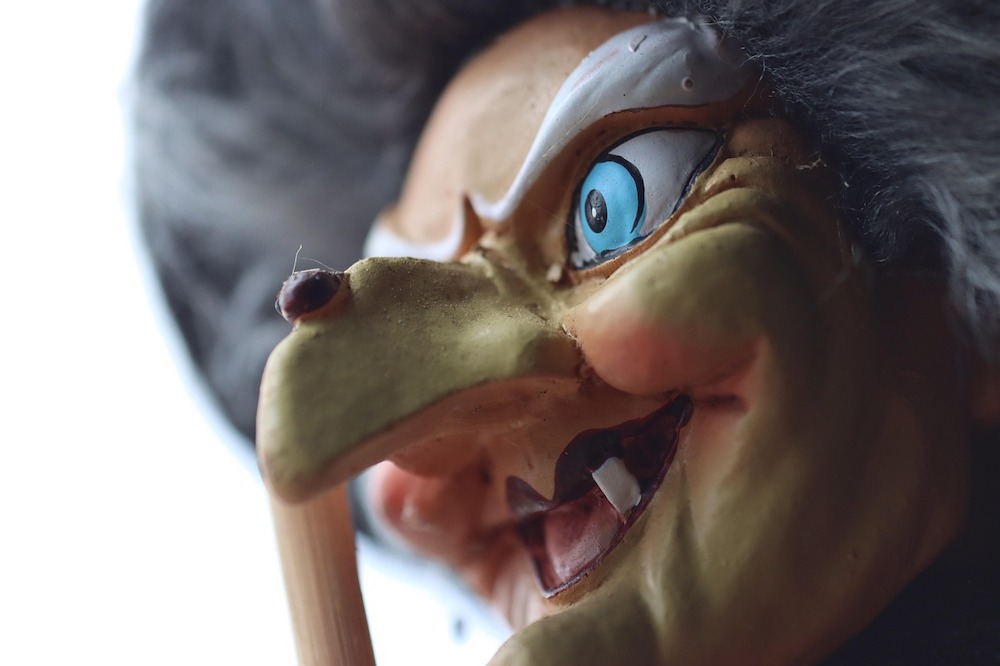
We accept that some men cut and run from parenting—even as we judge them for it—so why is it inconceivable that a woman might choose—with care and intention, and without the luxury of avoidance that sperm donors have—to have someone else raise their children?
You can love a child and not want to devote yourself to the all-consuming task of raising them. You can even want to be a parent, but not at the price of your freedom, education, family of origin, or addiction.
I want to live in a world—and I am working toward such a world, in my small way—where college is free and offers on-site childcare, where single parents are unstigmatized and surrounded by helpful friends and relatives, and where foster care serves its intended function: as a temporary placement that allows parents to focus on attending to recovery or other major issues in their lives before reuniting with their children.
This isn’t the world we live in, yet, and in the meantime, there are children who need families.
When I described adoption abolition to a friend whose niblings are adopted, she said it sounded dangerously close to an ideology that privileged biology over chosen family. Biology matters—I think any adoptee would say so—but it can’t matter more than everything else.
*
On another post by an adult adoptee, I left my family-preservation credentials (craving cookies like a furry blue monster): I’ve mentored queer teens in foster care, I worked for an organization that helped previously incarcerated parents reunite with their children, I’ve protested an administration that separates immigrant parents from their children for no reason, inflicting terror and trauma. I’ve published essays here and elsewhere about the problems of the adoption industrial complex. This is the public-facing side of my haunted life’s work.
I wrapped my comment by saying, “I love my children far too much to wish that I hadn’t adopted, but I also can’t pretend it wasn’t a selfish act.”
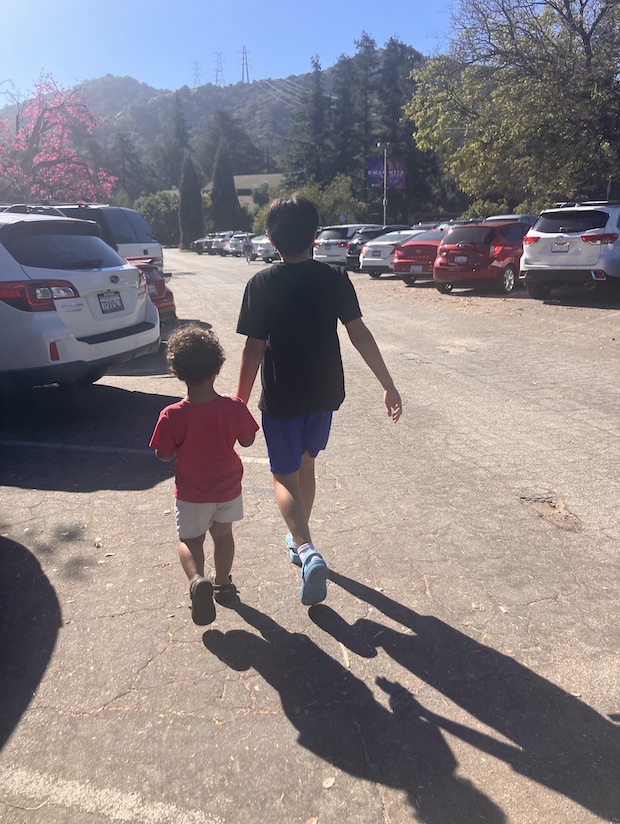
This time, I did get likes and positive comments from adoptees and others. One thanked me for countering the gaslighting she’d gotten in childhood, which I took to mean that her adoptive parents told her what a good deed they’d done by adopting her.
It felt good to have this dialogue. But I also think that people perceived my admission of selfishness as the confession of a sin, and they were as hungry for confession and contrition as I was for cookies.
Here’s a thing: Parenting should be a selfish act, to a point. People are better at jobs they want and like and actively pursue, but mothers are supposed to be completely fulfilled by parenting in a selfless way. The sacrifice is supposed to be the source of the joy, not the price of it.
But to me, motherhood always seemed like a cool job, one that had the potential to help me discover more of my self, not lose myself.
Watching a squirmy little larva become a full-on person? Reading them books? Packing lunch boxes with sliced grapes and goldfish crackers? Sharing someone’s first inside joke? Hosting family dance parties to the Kpop Demon Hunter soundtrack? Witnessing them encounter the sublime in a painting or a dinosaur skeleton or a marshmallow set ablaze by a campfire? Sign me up. I want it. For me. I crave it more than I’ve ever craved anything. It’s an experience I want to guzzle, even as it drowns me.
*This is not the only tenet of adoption abolition, which also advocates for increased transparency, trauma recognition, kinship placements whenever possible, and legal guardianship in place of adoption. Author and adoptee Susan Kiyo Ito touches on the topic here, and recommends the work of Dorothy Roberts, Alan Detlaff, and Gretchen Sisson.

